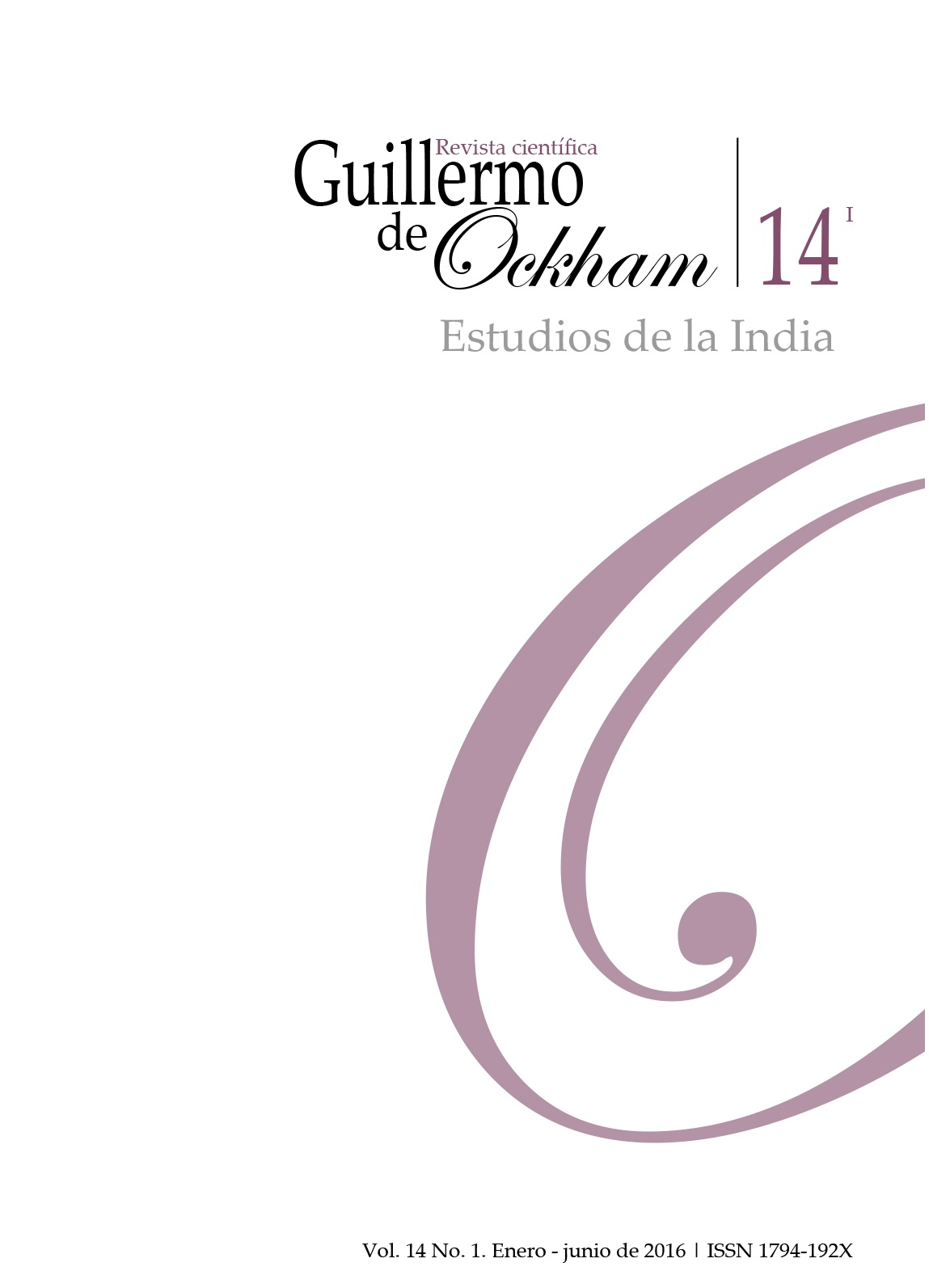The Revista Guillermo de Ockham provides an immediate and open access to its content, based on the principle of offering the public a free access to investigations to provide a global interchange of knowledge.
Unless otherwise established, the contents of this journal has a license with Creative Commons Attribution-NonCommercial-NoDerivatives 4.0 International (CC BY-NC-ND 4.0) http://creativecommons.org/licenses/by-nc-nd/4.0/
- Attribution: You must give appropriate credit, provide a link to the license, and indicate if changes were made. You may do so in any reasonable manner, but not in any way that suggests the licensor endorses you or your use.
- NonCommercial: You may not use the material for commercial purposes.
- NoDerivatives: If you remix, transform, or build upon the material, you may not distribute the modified material.
- No additional restrictions: You may not apply legal terms or technological measures that legally restrict others from doing anything the license permits.
Abstract
Em 1978, o crítico cultural e literário palestino-americano Edward Said escreveu um livro chamado Orientalismo: A Invenção do Oriente pelo Ocidente. Neste livro, Said criticou o trabalho acadêmico dos "orientalistas" na Europa e na América do Norte, considerando-o um instrumento do poder imperial. Sendo palestino, ele estava especialmente interessado em como o conhecimento europeu sobre o Oriente Médio e sobre o Islã foi produzido nos séculos XVIII, XIX e XX. Ele tinha menos a dizer acerca da produção europeia de conhecimento sobre o Sul da Ásia e o Leste da Ásia. No entanto, alguns dos meus professores e colegas, como Sheldon Pollock, Ronald Inden, e Richard King desenvolveram algumas ideias de Said, estendendo sua crítica ao orientalismo à discussão sobre a indologia e a sinologia.
References
Dirlik, A. (1996). Chinese History and the Question of Orientalism. History and Theory, 35(4), 96-118. doi: 10.2307/2505446
Hallisey, C. (1995). Roads Taken and Not Taken in the Study of Theravāda Buddhism. In S. Donald (Ed.), Curators of the Buddha: The Study of Buddhism under Colonialism (pp. Xx-33) IL: University of Chicago Press.
Kontje, T. (2004), German Orientalisms. MI: University of Michigan Press.
Kumar, A. (2014). Wendy Doniger’s fake victimhood. Recuperado de http://goo.gl/BqiIWb
Kumar, A. (2015). The Religious Crusades of the CIA. Recuperado de http://goo.gl/CN6qG4
Malhotra, R. (2002). Wendy’s Child Syndrome. Recuperado de http://goo.gl/Gkfpww
Nicholson, A. J. (2015). Upset About Malhotra’s Plagiarism. Recuperado de http://goo.gl/soa18p
Pollock, S. ( 2011). Crisis in the Classics, Social Research, 78(1), 21-48.
Pollock, S. (1993). Deep Orientalism? Notes on Sanskrit and Power Beyond the Raj. In C. Breckenridge & P. Van der Veer (Eds.), Orientalism and the Postcolonial Predicament (pp. 88-98). PA: University of Pennsylvania Press.
Said, E. (1978). Orientalism. NY: Vintage Books
Shainin, J. (2014). Why Free Speech Loses in India. Recuperado de http://goo.gl/bI8uWd
Tripathi, R. (2010). Sixty Years of Sanskrit Studies (1950-2010). Delhi: Rashtriya Sanskrit Sansthan.
































